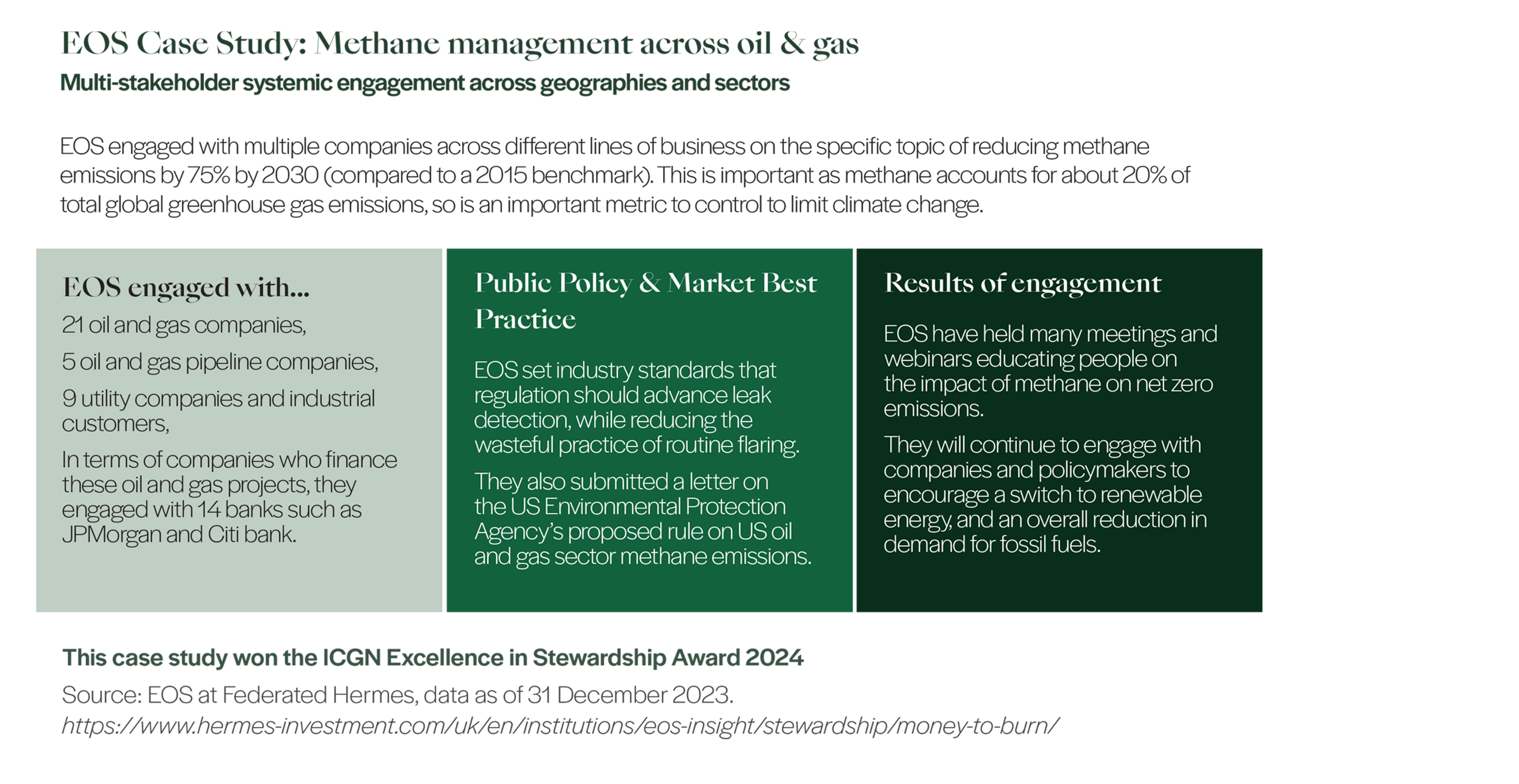Stewardship at atomos
At atomos, stewardship is an integral part of how we manage portfolios. While we use some exclusions where appropriate, we focus on constructive engagement as a tool for managing long-term risks and supporting resilient returns.
Issues like climate change, human rights, and governance are not just broader societal concerns — they also pose risks that can affect the stability of markets and, in turn, the performance of investments.
Our approach operates at several levels:
- Initial assessment: We work with WTW to ensure ESG considerations are integrated into the investment process, from manager selection through to portfolio oversight
- Monitoring managers: WTW engages with the external asset managers we use, reviewing their standards on areas such as climate metrics or human capital management
- Company-level engagement: Asset managers then engage directly with the companies they invest in, addressing issues such as workforce policies, environmental impact, and governance structures
Where funds are advised by WTW, we draw on the expertise of EOS at Federated Hermes, accessed via WTW, to support this work. EOS is a leading global provider of engagement services, representing investors with over £1.5 trillion in assets.
In 2024 alone, EOS:
- Held discussions with around 1,000 companies
- Addressed more than 4,000 engagement topics, including climate strategy, supply chain standards, and board effectiveness
In 2025, EOS at Federated Hermes is focusing its stewardship on key global themes. These include the shift to electric vehicles in the automotive sector, responsible use of antibiotics in healthcare and food, stronger governance around artificial intelligence, and greater corporate transparency on tax practices. Each reflects growing investor priorities and the need for companies to manage long-term risks effectively.
EOS’s scale gives it significant influence, enabling it to drive change across industries and regions. This work directly benefits our clients’ portfolios. At atomos, we track these activities closely and review progress regularly to ensure stewardship remains central to how we manage investments. You can find more detail in our latest Engagement Report.
EOS supports investors through two main forms of stewardship:
- Corporate engagement: working directly with companies to improve ESG practices. For example, EOS engaged with Apple on civil rights and workplace culture, leading to an independent audit with 40 recommendations. These changes have strengthened workforce management, supporting long-term resilience and shareholder value.
- Public policy engagement: working with regulators and policymakers to shape the rules that guide global markets, such as efforts to reduce methane emissions in the energy sector — an initiative recognised with the 2024 ICGN Excellence in Stewardship Award. More detail on this engagement is shown below.





